Law and Order
Do Kwon’s Terra Trial Set for 2026—Here’s What You Need to Know
Published
7 hours agoon
By
admin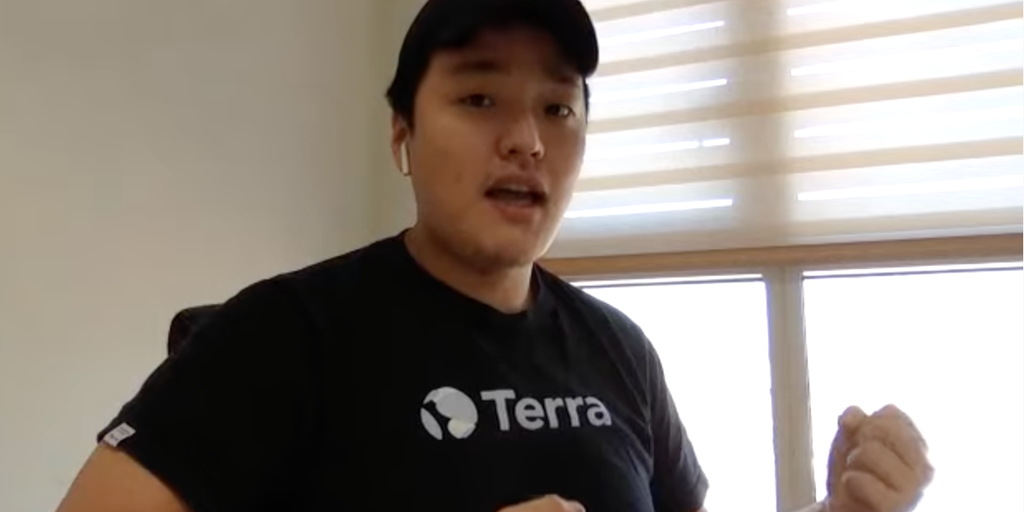
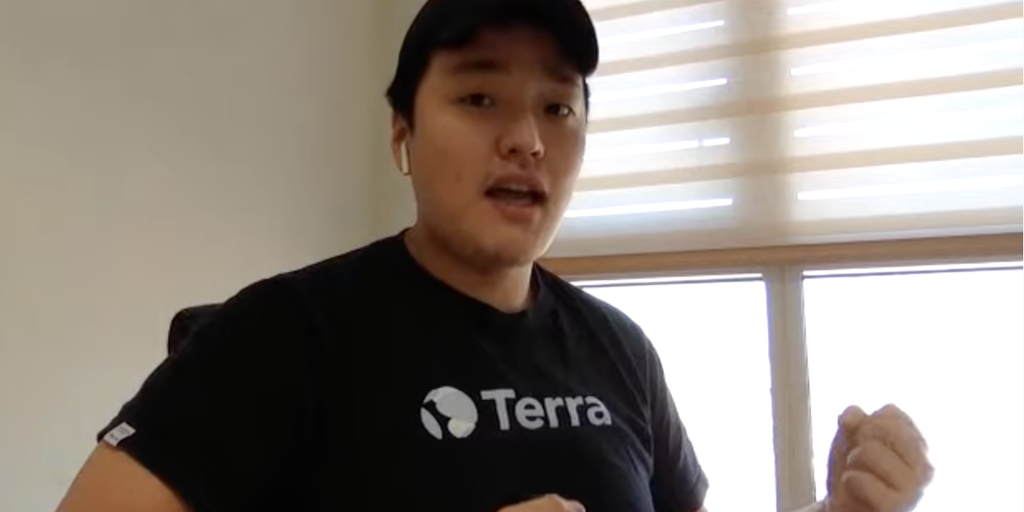
The high-stakes trial of Terraform Labs co-founder Do Kwon is scheduled for January 26, 2026, in the U.S. District Court for the Southern District of New York. He’ll spend the next year in federal jail, after his lawyers consented to his detention.
The trial, expected to last four to eight weeks, will address criminal fraud charges tied to the catastrophic $40 billion collapse of the TerraUSD (UST) stablecoin and its sister token LUNA in 2022.
This case is a culmination of international legal battles, financial ruin, and allegations of deceit that dismantled the promises that once captivated millions of crypto investors.
Do Kwon, who pleaded not guilty to the charges last week, has been accused of multiple counts of fraud, including securities fraud, wire fraud, and conspiracy to commit money laundering.
Prosecutors allege the Terra founder orchestrated schemes to manipulate markets, misrepresent the stability of Terraform’s products, and launder proceeds through Swiss bank accounts and other blockchains.
If convicted, the 33-year-old faces a maximum sentence of 130 years in prison.
In addition to the criminal charges, Kwon faces multiple civil lawsuits. In April 2024, a New York jury found Kwon liable for fraud in a case brought by the SEC.
Terraform Labs agreed to a $4.47 billion settlement with the SEC in June 2024. The Commodity Futures Trading Commission (CFTC) has also levied allegations against Kwon, compounding his legal challenges.
Speaking to Decrypt, Sid Powell, CEO & co-founder of Maple Finance, called the Terra ecosystem collapse a “wake-up call” for DeFi, or decentralized finance—a catch-all term that describes the various protocols and platforms built around automated, crypto-driven finance products.
“When it comes to regulatory effects, lawmakers began cracking down on DeFi protocols more aggressively,” said Powell. “Developers responded by prioritizing resilience and risk management, incorporating over-collateralization models and exploring hybrid mechanisms that combine algorithmic design with collateral.”
How $40 billion was lost in days
The collapse of Terraform Labs’ ecosystem in May 2022 remains one of the most devastating events in crypto history. It wiped out $40 billion in market value almost overnight.
Both UST and LUNA were designed to work together in a system that promised stability and high returns, but flaws in its design led to a catastrophic failure. UST’s stability relied on an algorithmic system where its value was maintained through a burn-and-mint mechanism with LUNA.
When UST traded below $1, users could burn UST to mint LUNA, reducing supply and restoring the peg. Conversely, when UST traded above $1, LUNA could be burned to mint more UST.
On May 6, 2022, a large UST selloff on Curve Finance caused the stablecoin to lose its dollar peg. Panic set in, leading to mass redemptions.
As UST’s value fell, the burn-and-mint mechanism drastically inflated LUNA’s supply, diluting its value. Within days, UST plummeted to $0.13, while LUNA’s price collapsed from $64 to fractions of a cent.
The algorithmic system failed to stabilize UST, triggering a death spiral that obliterated the ecosystem’s value and impacted more than a million estimated victims.
The collapse also rippled through the crypto sector, pushing several interconnected projects into bankruptcy and contributing to the eventual downfall of the FTX exchange.
There was also reinforced skepticism toward high-yield generating crypto projects (since the crash), prompting a shift in focus toward more sustainable projects,” Sei Labs co-founder Jayendra “Jay” Jog told Decrypt. “Trust in algorithmic stablecoins—seen as innovative but inherently risky—diminished, prompting investors to focus on fiat-backed stablecoins such as USDC and USDT.”
Extradition tug-of-war
Following the TerraUSD collapse, Kwon went on the run, evading international authorities. Kwon was arrested in Montenegro in March 2023 for attempting to travel with a forged passport.
Both the U.S. and South Korea sought his extradition. Montenegro’s courts initially ruled in favor of South Korea, but U.S. prosecutors ultimately secured his extradition in December 2024.
Upon his arrival in the U.S., Kwon appeared in court and agreed to remain in custody without bail.
The Terra crash exposed the vulnerabilities of algorithmic stablecoins and unregulated financial systems. Kwon now faces trial, which will serve as a litmus test for accountability in the largely unregulated crypto space.
Edited by Stacy Elliott.
Daily Debrief Newsletter
Start every day with the top news stories right now, plus original features, a podcast, videos and more.
Source link
You may like


5 low-cap coins aiming for potential life-changing gains


$175M Staking to spark $3,300 Breakout?


Crypto Surging Higher Than Expected As Asset Class Now in ‘Fundamentally Different Game’: Investor Ryan Watkins


Shareholder pokes Meta to fill corporate treasury with BTC
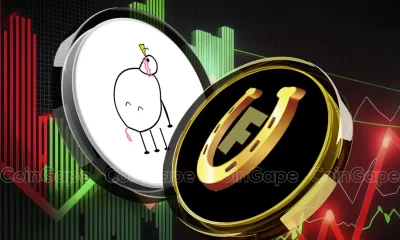

Where To Invest Before January Ends?


Why High Net-Worth Investors Are Super Bullish on Bitcoin Right Now
Law and Order
North Dakota Considers Crypto Reserve as State Bitcoin Treasuries Gain Momentum
Published
23 hours agoon
January 11, 2025By
admin
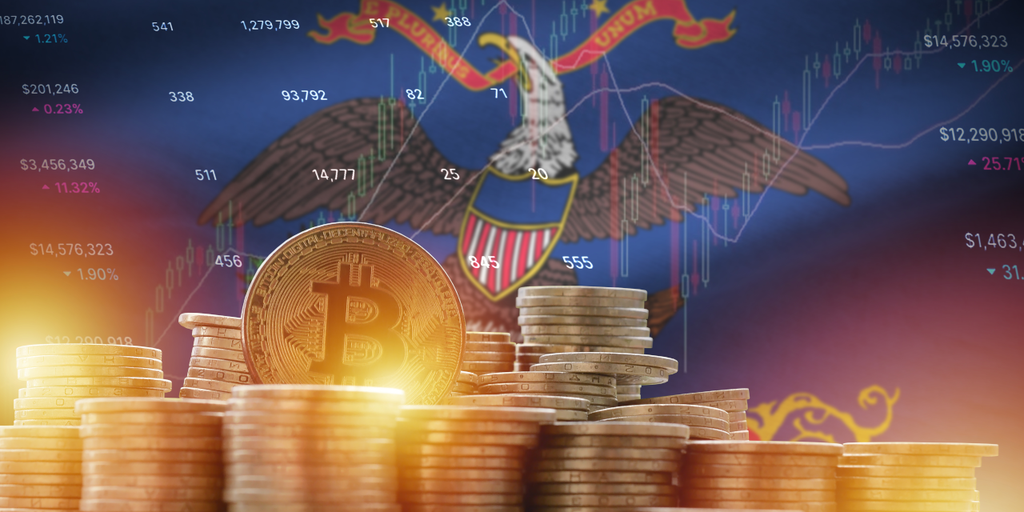
North Dakota is the latest U.S. state to consider including Bitcoin in its balance sheets. On Friday, the North Dakota State Legislature introduced a resolution aimed at investing “select state funds in digital assets and precious metals.”
Resolution 3001 aims to curb the impact of inflation on North Dakota’s finances by diversifying the assets the state invests in. North Dakota Representatives Nathan Toman, Matthew Heilman, Jared Hendrix, Daniel Johnston, SuAnn Olson, and Todd Porter, along with Senators Jeff Barta and Bob Paulson, introduced the resolution.
“Whereas changing economic conditions and emerging investment opportunities require prudent investment of the state’s financial resources,” the resolution said.
If passed, the North Dakota Legislative Assembly would direct the State Treasurer and Investment Board to allocate portions of key state funds to invest in digital assets. Notably, however, while encouraging digital asset investments, the resolution did not name Bitcoin specifically.
Also Friday, legislation for a state Bitcoin reserve was introduced in New Hampshire, and while that proposed bill also didn’t mention Bitcoin by name, Bitcoin would be the only coin eligible for the New Hampshire reserve based on market cap stipulations. The North Dakota resolution doesn’t have the same criteria, however.
“The resolution is simply encouraging the State Treasurer and the State Investment Board to look at investing in different types of assets rather than what they currently do,” North Dakota Legislative Council Director John Bjornson told Decrypt. “It doesn’t hold the force of law, so it doesn’t include definitions about what those may include that would be something that would be more appropriate for a bill.”
Resolution 3001 is expected to be voted on Tuesday, but until then, the move is mostly symbolic. Other states considering strategic Bitcoin reserves include Florida, Texas, Pennsylvania, Ohio, and New Hampshire. In September, Louisiana began accepting payments for services with Bitcoin and the USDC stablecoin.
“The state that is last to build Bitcoin reserves will lose,” New Hampshire Rep. Keith Ammon told Decrypt earlier Friday. “It’s urgent that states act sooner than later, and that takes some education on the part of state officials.”
Edited by Andrew Hayward
Daily Debrief Newsletter
Start every day with the top news stories right now, plus original features, a podcast, videos and more.
Source link
Law and Order
Pakistani Trader Kidnapped, Forced to Hand Over $340,000 in Crypto
Published
4 days agoon
January 8, 2025By
admin

A Pakistani cryptocurrency trader, Mohammed Arsalan, was kidnapped in a scheme that involved local law enforcement officers and released after paying his captors $340,000 in crypto.
Investigation into the case led to seven arrests so far, according to a recent report by local English-language news outlet Dawn. Per the report, a suspected policeman is still at large and an officer of the Pakistani Counter-Terrorism Department was among the arrested.
The kidnappers reportedly forced the 30-year-old trader to pay $340,000 from his Binance account balance. After multiple contacts with the kidnappers pretending to be looking to buy U.S. dollars from the victim, five men in civilian clothes forcibly abducted the trader after gagging him in a police vehicle on Dec. 25.
The news follows November reports that a Ukrainian man was coerced into transferring 250,000 worth of stablecoin USDT after a group of criminals got hold of him. Also in November, police started investigating the high-profile abduction of Dean Skurka, CEO of Toronto-based crypto firm WonderFi Technologies, who was abducted and released after the payment of a $720,000 ransom.
Jeremiah O’Connor, chief technology officer and co-founder at crypto cybersecurity firm Trugard, told Decrypt that the news “underscores a troubling, though not unprecedented, trend of kidnapping and extortion targeting individuals for their digital assets.” Byron Boston, former Dallas police officer and CEO of crypto firm Crypto Track, agreed and notedthat “cryptocurrency-related kidnappings are increasingly common.”
O’Connor’s recommendations include minimizing public exposure, using multi-signature wallets and time-locked transactions, and practicing general situational awareness.
“The rise in crypto-related extortion and kidnappings calls for stronger international collaboration among law enforcement agencies, improved regulatory frameworks, and enhanced education on operational security for those engaged in the crypto space,” he added.
The people involved in the crime were habitual offenders who had previously committed similar crimes, according to the local report. An inspector reassured reporters that the law enforcement officers connected to the kidnapping would see no leniency.
Boston noted that “the involvement of corrupt law enforcement officials in kidnappings further complicates investigations.” He explained that “criminals with access to sensitive information or investigative methods can undermine efforts to trace and recover stolen funds.”
Arsalan expressed his anger in a Dec. 31 Facebook post. He wrote that he is “ashamed to be a citizen of this country.” He ended the message by saying: “Don’t bother me by calling or messaging me. I am very depressed, mentally dead.”
Edited by Stacy Elliott.
Daily Debrief Newsletter
Start every day with the top news stories right now, plus original features, a podcast, videos and more.
Source link
Law and Order
FDIC Took Issue With Banks Using Public Blockchains Like Ethereum, FOIA Docs Reveal
Published
1 week agoon
January 4, 2025By
admin
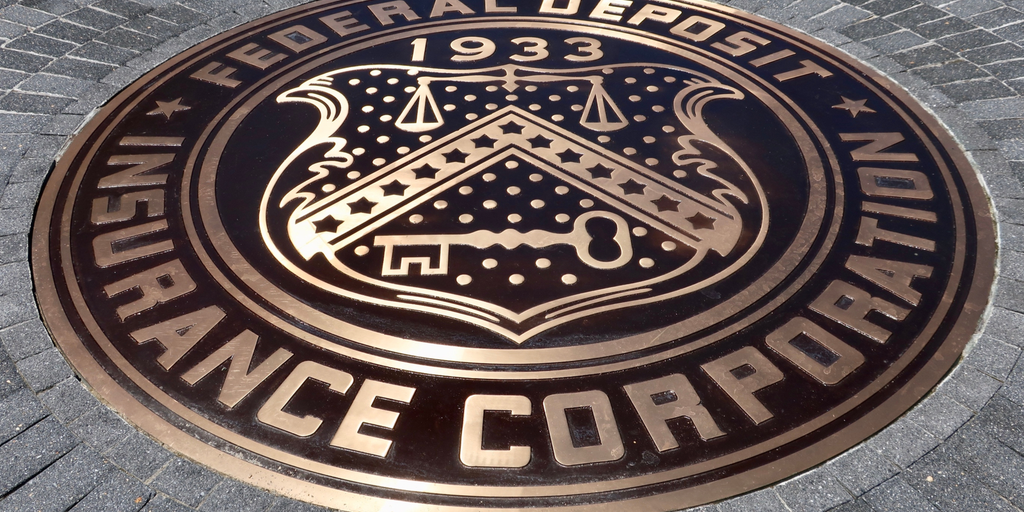
American banks seeking to offer customers services built on public blockchain networks appear to have been discouraged from doing so by the Federal Deposit Insurance Corporation, documents released Friday revealed.
The disclosure came courtesy of a trove of newly unredacted crypto-related correspondences between the FDIC and member banks. San Francisco-based cryptocurrency exchange Coinbase obtained the documents via the Freedom of Information Act, or FOIA. Last month, Coinbase secured heavily redacted versions of 23 such letters.
Thanks to a court order, the contents of those letters—and two new ones—were revealed today in their (near) entirety.
One of those letters, sent in March 2022 from the FDIC’s New York office to a member bank, detailed how the federal agency had learned that the bank planned to roll out a “Bank Digital Deposit” program built to run on a public blockchain. The name of that public blockchain remains redacted.
In the letter, the FDIC appears to take issue with the bank opting to use a public blockchain instead of a private, permissioned network. Blockchains like Ethereum and Solana are decentralized and permissionless, meaning that activity on them is fully public and cannot be overridden by third-party human administrators. By contrast, private blockchain networks, like those used by nation states to issue central bank digital currencies, place limits on who can use them and for what purpose.
The FDIC is apparently not a fan of member banks launching products on anything-goes, fully transparent networks. The regulator instructed the New York bank in the March 2022 letter to submit to a new, detailed review process before launching any products on public blockchains.
Other letters disclosed Friday show the FDIC ordering member banks to halt the implementation of services related to the buying and selling of Bitcoin. Sections of the same letters unredacted last month showed the FDIC instructing member banks to “pause all crypto asset-related activity.”
Coinbase Chief Legal Officer Paul Grewal touted today’s revelations as further proof of an alleged Biden administration initiative waged against the crypto industry via banking regulations that’s become known as “Operation Chokepoint 2.0” (borrowing the name from the Obama era scheme that targeted firearms dealers and payday lenders).
“They show a coordinated effort to stop a wide variety of crypto activity,” Grewal said on X (formerly Twitter) of Friday’s FDIC letters.
Daily Debrief Newsletter
Start every day with the top news stories right now, plus original features, a podcast, videos and more.
Source link

5 low-cap coins aiming for potential life-changing gains

$175M Staking to spark $3,300 Breakout?

Crypto Surging Higher Than Expected As Asset Class Now in ‘Fundamentally Different Game’: Investor Ryan Watkins

Shareholder pokes Meta to fill corporate treasury with BTC

Do Kwon’s Terra Trial Set for 2026—Here’s What You Need to Know

Where To Invest Before January Ends?

Why High Net-Worth Investors Are Super Bullish on Bitcoin Right Now

This new token targets 1,200x growth and could topple SUI and ADA

Expert Predicts SEC To Approve XRP And Solana ETF This Year

$7,000 Ethereum In Sight? Expert Breaks Down The Potential Path

$190m raised, OG Labs secures capital
New Hampshire Lawmaker Introduces Bill That Would Enable the State To Form a Digital Asset Treasury
Top 3 Reasons to be Bullish on Dogecoin (DOGE) Price

Are Pudgy Penguins pushing back?
Hamster Kombat (HMSTR) Price Prediction January 2025, 2026, 2030, 2040

Ethereum’s lowered yield might signal a paradigmatic shift in the ecosystem

Arthur Hayes, Murad’s Prediction For Meme Coins, AI & DeFi Coins For 2025

Telegram users can send gifts to friends, TON fails to pump

Bitcoin Could Rally to $80,000 on the Eve of US Elections

Institutional Investors Go All In on Crypto as 57% Plan to Boost Allocations as Bull Run Heats Up, Sygnum Survey Reveals

Crypto’s Big Trump Gamble Is Risky

A Kamala Presidency Could Be Just as Bullish for Bitcoin

Ripple-SEC Case Ends, But These 3 Rivals Could Jump 500x

SEC filing underway, Bitcoin rewards app Fold adopts FLD ticker

Cardano and the XRP price action lock in bulls vs bears battle as RCO Finance prepares for 3,000% surge

A16z-backed Espresso announces mainnet launch of core product

Tether CEO Paolo Ardoino Denies Rumors That Stablecoin Issuer Is Under Federal Investigation

Crypto Exchange OKX Moves To Support USDC Ecosystem by Adding Six New Trading Pairs

Trump’s Coin Is About As Revolutionary As OneCoin

Ripple Vs. SEC, Shiba Inu, US Elections Steal Spotlight
Trending

 DeFi3 months ago
DeFi3 months agoEthereum’s lowered yield might signal a paradigmatic shift in the ecosystem

 24/7 Cryptocurrency News2 months ago
24/7 Cryptocurrency News2 months agoArthur Hayes, Murad’s Prediction For Meme Coins, AI & DeFi Coins For 2025

 News3 months ago
News3 months agoTelegram users can send gifts to friends, TON fails to pump

 Bitcoin2 months ago
Bitcoin2 months agoBitcoin Could Rally to $80,000 on the Eve of US Elections

 Bitcoin2 months ago
Bitcoin2 months agoInstitutional Investors Go All In on Crypto as 57% Plan to Boost Allocations as Bull Run Heats Up, Sygnum Survey Reveals

 Opinion2 months ago
Opinion2 months agoCrypto’s Big Trump Gamble Is Risky
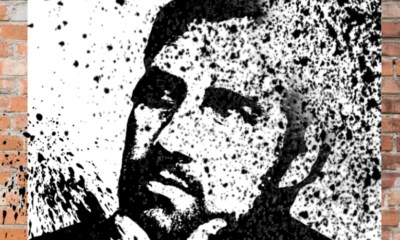
 Opinion3 months ago
Opinion3 months agoA Kamala Presidency Could Be Just as Bullish for Bitcoin

 Price analysis2 months ago
Price analysis2 months agoRipple-SEC Case Ends, But These 3 Rivals Could Jump 500x


